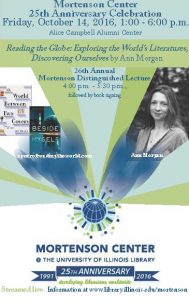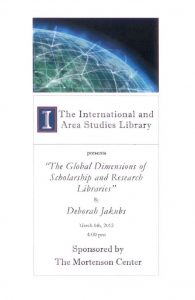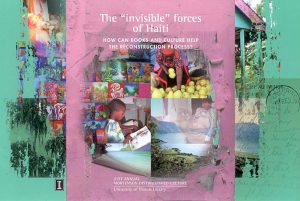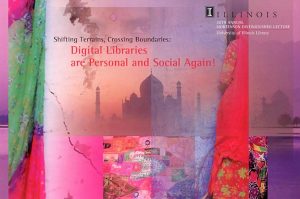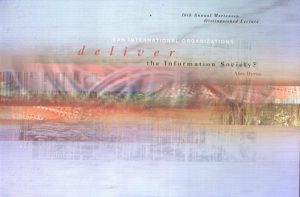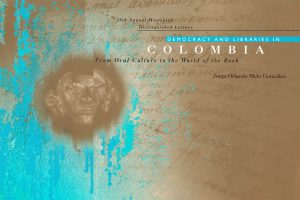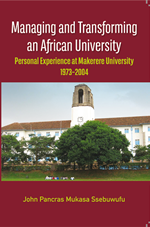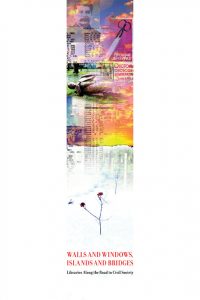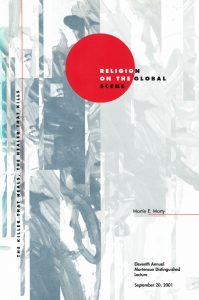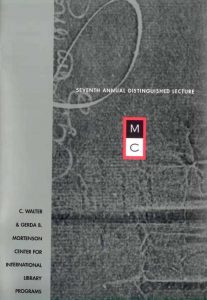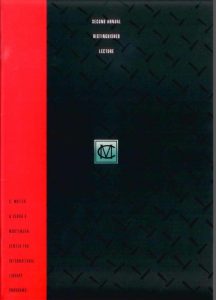34th Annual Mortenson Distinguished Lecture | 19 Sept 2024
“Reading as Belonging: Implications for Library and Information Practice,” by Nadia Caidi, Professor and Director of International Student Experience, Faculty of Information, University of Toronto
HYBRID: In person (School of Information Sciences building, Room 126, 501 E. Daniel St., Champaign) AND online
Register for the Lecture.
Related Events:
WORKSHOP on Arts-Based Knowledge Translation: Information (and Other) Professionals Supporting Communities Toward Action
Wednesday, September 18, 2024; 2:30-4:30pm | Location: School of Information Sciences, 614 E. Daniel St., Champaign, Room 4045Co-facilitated by Nadia Caidi, Professor and Director of International Student Experience, Faculty of Information, University of Toronto AND Michelli Costa, Professor, Faculty of Information Science at the University of Brasilia
Abstract: Researchers in the information fields have traditionally produced and focused their efforts on published research and syntheses of research findings. While these mechanisms play an important role in the dissemination of knowledge, we argue that there is a need for knowledge translation and mobilization efforts and deliverables that can target a variety of key audiences, including through the arts. The aim of this interactive workshop is to share over two decades of community-engaged research, and the lessons learnt from the process of supporting and mobilizing communities, and producing different knowledge deliverables (including art-based ones, such as animated films or comics) for a range of publics. Together, we will reflect on the relevance and importance of art as a means of storytelling, how we might harness aesthetic and artistic tropes to engage audiences, challenge the intellect, and trigger an effective response. Knowledge brokering and translation provide a unique avenue for information professionals to engage in this type of information work thus fostering the kinds of connections we already value, alongside positive societal change.
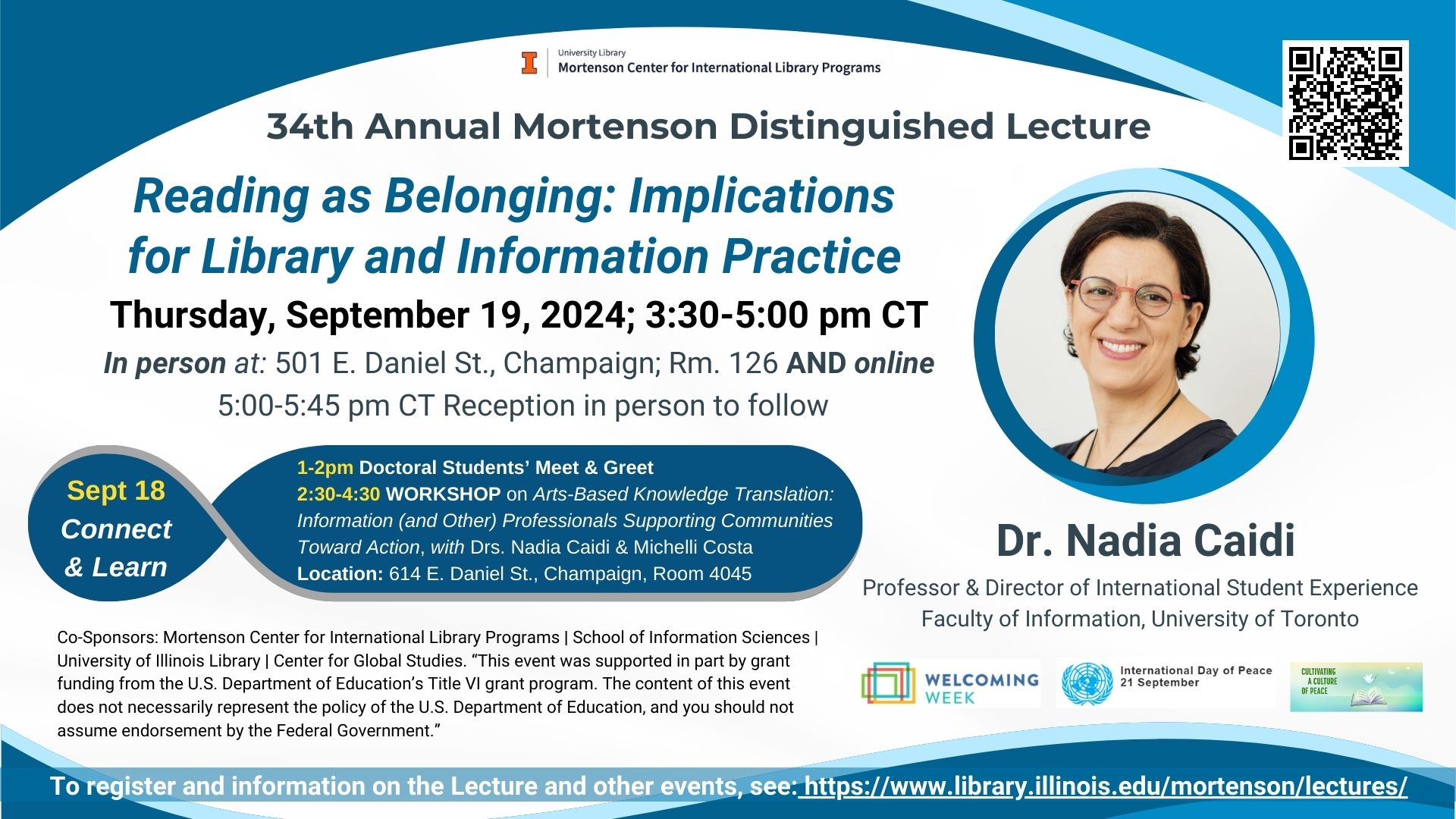
Postcard: PDF | Front-jpg/Back-jpg. Digital Sign (1819x950px): jpg | png. Digital Sign (1920x1080px): jpg | png.
ABSTRACT
In this Lecture, I want to challenge us to think about the extent to which our library and information field is truly moving the dial on today’s pressing societal challenges. Are we really equipping our students and staff with the skills and mindset they need to work meaningfully with communities, to practice an ethics of care towards the most marginalized, to take responsibility for our collective future? We will do so by examining the example of migration and belonging through the lens of heritage language and young people’s engagement with reading for pleasure. Despite playing a crucial role in communities as spaces of gathering, learning, memory and culture, libraries are also institutions that continue to be perceived and experienced as culturally and linguistically homogeneous. I argue that a systemic approach to understanding the issues of identity and heritage language loss can benefit librarians (and other actors) in supporting the youth’s intertwined identities as members of rich cultural, linguistic and reading communities. The Lecture presents a recent study of over 50 Canadian youth (aged between 13-18) who are members of the French official language minority community in Ontario, using a participatory approach that included 4 co-design workshops with youth, an 8-week reading diary activity, and interviews with key actors was devised. The findings open the way for critical discussions about the field and practice of librarianship, and about what we risk losing if we do not invest and lean on solidarity networks to sustain (or rebuild) our field’s societal trust and relevance.
BIOGRAPHY
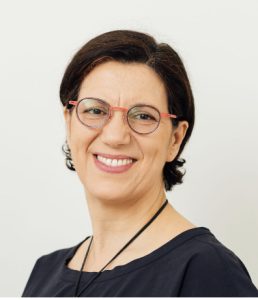 Dr. Nadia Caidi is Professor and Director of International Student Experience at the Faculty of Information in the University of Toronto. She is a scholar of information (and) marginalization and the role that information resources, institutions, and technologies play in the everyday lives of individuals and communities in various states of transition. Her research has been conducted in the context of global migration, language communities in a minority context, techno-spiritual and religious practices, and diversity by design in the information fields. Read more at Profile page and Personal webpage.
Dr. Nadia Caidi is Professor and Director of International Student Experience at the Faculty of Information in the University of Toronto. She is a scholar of information (and) marginalization and the role that information resources, institutions, and technologies play in the everyday lives of individuals and communities in various states of transition. Her research has been conducted in the context of global migration, language communities in a minority context, techno-spiritual and religious practices, and diversity by design in the information fields. Read more at Profile page and Personal webpage.
CO-SPONSORED BY: Center for Global Studies – “This event was supported in part by grant funding from the U.S. Department of Education’s Title VI grant program. The content of this event does not necessarily represent the policy of the U.S. Department of Education, and you should not assume endorsement by the Federal Government.” | Mortenson Center for International Library Programs | School of Information Sciences | University of Illinois Library Urbana-Champaign
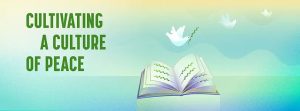
Join the UN to mark the 25th anniversary of the United Nations General Assembly’s adoption of the Declaration and Programme of Action on a Culture of Peace.
“Meet Your Neighbors: A Human Library Event | 14 Sept 2024
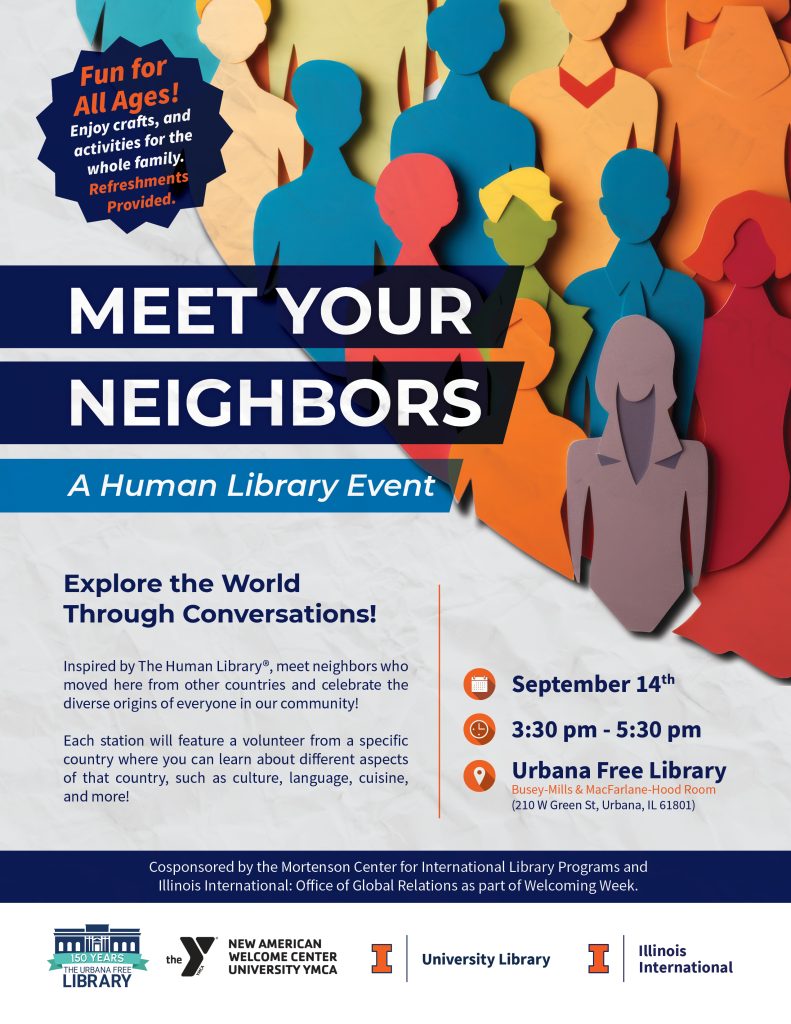
Date & Time:
Saturday September 14 -3:30-5:30PM
Venue:
The Urbana Free Library, Room-Busey-Mills & MacFarlane-Hood
210 West Green Street, Urbana, Illinois 61801
Description: Inspired by the Human Library®, the event features area neighbors who moved here from other countries and celebrates the diverse origins of everyone in our community!
Each station will feature a neighbor from a specific country where you can learn about different aspects of that country, such as culture, language, and cuisine, or ask other questions! Open to ALL ages!
Ten countries will be featured : Algeria, Argentina, Brazil, Congo, Guatemala Jamaica, Kazakhstan, Russia, South Africa, South Korea and Yemen. In keeping with the mission of the Mortenson Center, the event aims to introduce the concept of “internationalization @ home to the University of Illinois community and to foster intercultural competency and global understanding as well as welcome newcomers to the community while embracing diversity and fostering a sense of belonging.
Sponsored by the Urbana Free Library, Mortenson Center for International Library Programs and Illinois International: Office of Global Relations as part of the National Welcoming Week.
Past Lectures
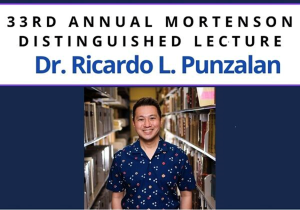 Reciprocity Reparative Actions & Decolonial Work
Reciprocity Reparative Actions & Decolonial Work
Dr. Ricardo L. Punzalan
September 21, 2023
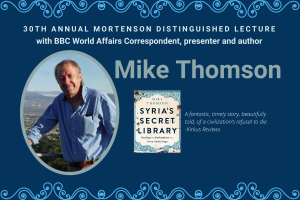 BBC World Affairs Correspondent, presenter and author of Syria’s Secret Library
BBC World Affairs Correspondent, presenter and author of Syria’s Secret Library
Immortalizing the Voiceless
Mike Thomson
September 21, 2022
 Engineering Change and the Power of Information: Otherness, Exclusion, Propaganda, Dislocation
Engineering Change and the Power of Information: Otherness, Exclusion, Propaganda, DislocationDr. Agnes Kaposi
November 8, 2021
 BBC World Affairs Correspondent, presenter and author of Syria’s Secret Library
BBC World Affairs Correspondent, presenter and author of Syria’s Secret Library
Mike Thomson
November 16, 2020
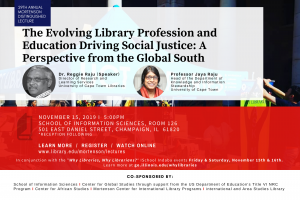 The Evolving Library Profession and Education Driving Social Justice: A Perspective from the Global South
The Evolving Library Profession and Education Driving Social Justice: A Perspective from the Global South
Dr. Reggie Raju (speaker) & Professor Jaya Raju
November 15, 2019
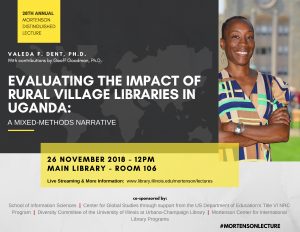 Evaluating The Impact of Rural Village Libraries in Uganda: A Mixed-Methods Narrative
Evaluating The Impact of Rural Village Libraries in Uganda: A Mixed-Methods Narrative
Valeda Dent, PhD
November 26, 2018
 Enduring Wars In Transpacific Memories
Enduring Wars In Transpacific Memories
Viet Thanh Nguyen
September 14, 2017
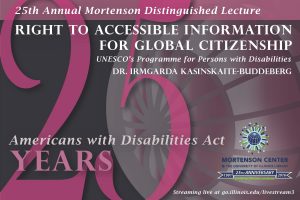 Right to Accessible Information for Global Citizenship
Right to Accessible Information for Global Citizenship
Dr. Irmgarda Kasinskaite-Buddeberg
October 27, 2015
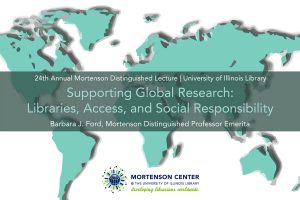 Supporting Global Research:Libraries, Access, and Social Responsibility
Supporting Global Research:Libraries, Access, and Social Responsibility
Barbara J. Ford
October 7, 2014
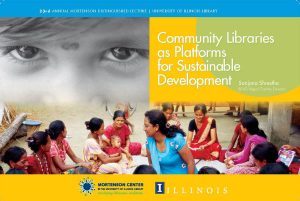 Community Libraries as Platforms for Sustainable Development
Community Libraries as Platforms for Sustainable Development
Sanjana Shrestha
September 17, 2013
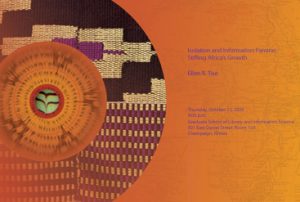 Isolation and Information Famine: Stifling Africa’s Growth
Isolation and Information Famine: Stifling Africa’s Growth
Ellen Tise
October 22, 2009
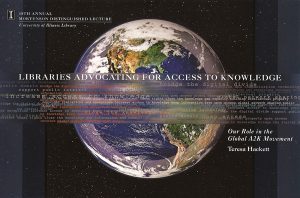 Libraries Advocating for Access to Knowledge: our role in the global A2K movement
Libraries Advocating for Access to Knowledge: our role in the global A2K movement
Teresa Hackett
September 17, 2008
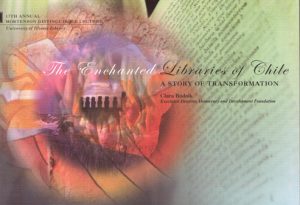 The Enchanted Libraries of Chile: a story of transformation
The Enchanted Libraries of Chile: a story of transformation
Clara Budnik
October 19, 2007

Information Competencies: A Bridge to Narrow North-South Knowledge Gaps
Jésus Lau
September 23, 2003
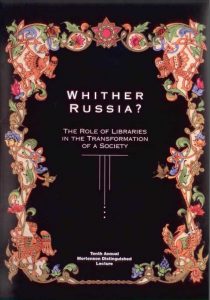
Whither Russia?
The Role of Libraries in the Transformation of a Society
Ekaterina Genieva
November 16, 1999
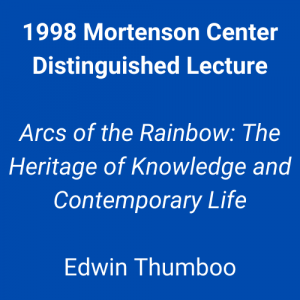
Arcs of the Rainbow:
The Heritage of Knowledge and Contemporary Life
Edwin Thumboo
October 29, 1998
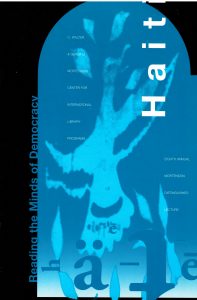
Reading the Minds of Democracy
Michéle Duvivier Pierre-Louis
November 12, 1997
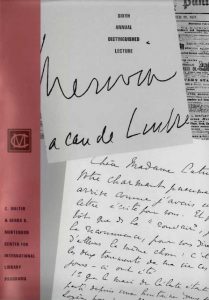
Preserving the Written Intellectual and Cultural Heritage: An Obsolete Task of Libraries?
Hans-Peter Geh
September 28, 1995
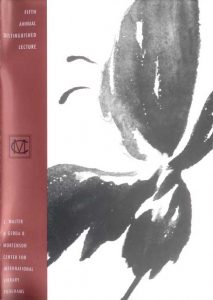
The Metamorphosis of the Word:
Libraries With a Future
Juan Rada
October 11, 1994
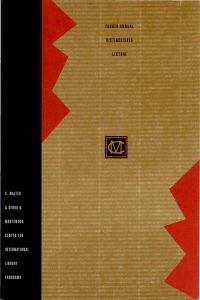
The Heart of the University:
The Making of a Global Library
Robert Wedgeworth
September 30, 1993
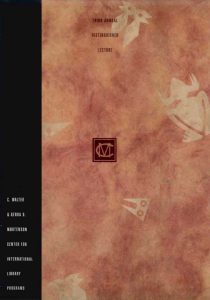
Culture and Development Between Tradition and Modernity
Julieta Campos
November 18, 1992
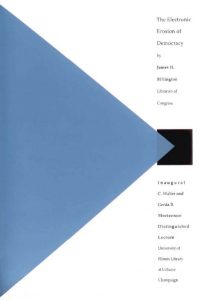
The Electronic Erosion of Democracy
James H. Billington
September 10, 1990
